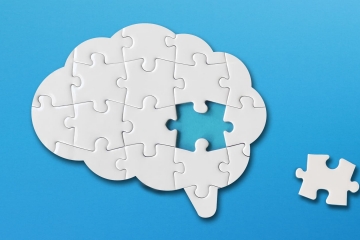
How to Manage to Prepare for the Citizenship Exam When Time is Short? Imagine this situation: only two months remain before the exam. In front of you are three hundred questions on history, culture, politics, geography, plus numerous texts, audio recordings, and questions for oral and written answers. Panic begins: “Where do I start? Will I even have time to read all of this?” At this point, what plays the decisive role is not so much the number of hours spent studying the materials, but the correctly structured preparation strategy.
Reference
The πολιτογράφηση exam (Greek: Πιστοποιητικό Επάρκειας Γνώσεων για Πολιτογράφηση, PEGP) is a mandatory test for obtaining Greek citizenship through naturalization. It was introduced in Greece in 2021 in accordance with Law No. 4735/2020 and is aimed at assessing the knowledge of candidates who wish to become citizens of Greece.
Why is this exam so important?
In Greece, the citizenship exam tests not only knowledge of the Greek language, but also understanding of the country’s history, geography, politics, and culture. It is not just a formal test—it reflects readiness to become a full member of society, to share its values, and to navigate the key aspects of public life. For success, it is important to master not only the language but also the context: from historical events to cultural traditions and the foundations of civil rights.
Tip: start preparing for the exam once your language level has reached A2 or higher—it will help you better understand the assignments and questions.
However, knowledge of the material is only part of success. It is equally important to create conditions that allow you to focus and prepare productively.
Organizational points
Preparation for the exam is not only books and tests, but also a properly organized workspace. The desk should be free of unnecessary items so nothing distracts attention. All necessary materials—textbooks, notebooks, maps, and tests—should be kept at hand to avoid wasting time searching. Nearby, you may keep a bottle of water and a light snack: the brain, like muscles, works better with a stable energy level. Lighting and a comfortable chair are also important—comfort directly affects concentration and reduces fatigue. If you are working with electronic materials, take care in advance to block access to social networks or turn off notifications—otherwise, you risk being pulled into scrolling reels or reading endless feeds instead of studying.
Individual approach as the key to success
Often, learners try to follow someone else’s preparation schedule, but there is no universal plan. Each person has their own level of knowledge, memory characteristics, and biorhythms: some learn best in the morning, others in the evening; some memorize better through reading, others through practice. Therefore, a general plan should be viewed only as a framework that needs to be adapted—highlighting priorities, distributing workload rationally, and filling it with one’s own methods.
Tip: consider what type of memory you have and honestly assess your individual characteristics to build the most effective plan.
Initial diagnosis of strengths and weaknesses
Start preparing for the exam by covering the entire scope of the material: in the first days, do not try to memorize everything, but simply skim all the topics, assessing which ones are familiar and which are more difficult. It is better to do this in parallel with online tests and printed materials—like a marathon runner running the entire course without stopping for details. You can dedicate 1–2 days to each topic to get a full overview and determine priorities for further work.
Tip: mark difficult topics immediately so you can focus on them during review and consolidation.
Then, to make preparation systematic and not turn into chaotic re-reading, it is useful to follow a structured plan. Below is an example of an intensive two-month schedule that will help cover all the material and reinforce key topics.
Two-month intensive preparation plan
First 10 days
The goal is to get acquainted with the full volume of test questions. Read through the tests on politics, geography, history, and culture from start to finish. Mark what is already familiar and highlight the difficult ones. For example, assignments in politics where you must write out definitions, or geography questions where you must identify and label objects on maps.
Tip: Hang a detailed map of Greece on the wall—daily visual repetition helps absorb geographic data. Create flashcards with definitions or use ready-made sets online.
Following weeks
Alternate topics daily: today geography, tomorrow politics, the day after history, then culture. This rhythm allows the brain to process one subject while you switch to another, preventing overload.
Do not forget contour maps and political terms: every day go through 1–2 maps, regardless of the main topic, and write out at least one term.
At the same time, write essays daily: there are 100 in total, so you can do 2 per day over 50 days. The key is to write them by hand—this trains memory, spelling, and writing speed.
Work regularly on the listening part, but with flashcards where only the question and answer are written. Your goal is not to replay long audio but to reinforce correct answers. There are 100 tracks—listening to each once, distributed over days (2–5 per day), is enough.
Work with online tests daily to assess progress: quickly scroll through questions you are confident in and focus on harder ones. Do not be discouraged if you do not remember an answer—regular repetition consolidates knowledge. Carefully reread the correct answer and move on.
An example of the main preparation cycle:
- Alternating test topics + every day includes language practice — 2 texts, 2 essays, 2 audio topics.
- Geography day: 10 test questions + 1–2 contour maps + language tasks.
- Politics day: 10 questions + 1 term + language tasks.
- History day: 10 test questions + 1 open question + language tasks.
- Culture day: 10 questions + language tasks.
- Every fifth day: rest and light review (for example, preparing picture-based answers).
Cycle tip: if you plan to study geography tomorrow, take a practice test the evening before, note mistakes, and focus on them in the morning. If politics is planned the next day, take a test in the evening, note mistakes, and review them the next morning. This makes review targeted and maximally effective.
Final week
Focus on the oral part and reviewing all material. Daily prepare oral answers to picture-based questions and take online tests to consolidate knowledge. Prepare short thesis-based answers in advance for oral exam questions—this will help you think through responses and not get lost during the actual test.
This plan may look like this in table form:
| Stage | Actions and recommendations |
| First 10 days | Read all tests (politics, geography, history, culture). Mark difficult ones. Hang a map of Greece. Use flashcards with terms. |
| Following weeks, main cycle | Alternate topics. Daily: 10 questions of one topic, 1–2 maps, 1 term, 2 essays. Short audio practice (2–5 tracks). Online tests with focus on mistakes. |
| Rest | Every 5th day — rest and light review. | |
| Method | Evening: trial test on tomorrow’s topic → write down mistakes. Morning: focus on difficult questions. |
| Final week | Oral practice + revision. Daily oral answers with pictures. Online tests. Prepare thesis-style answers for confidence. |
Common mistakes in preparation
- Perfectionism
Many students spend too much time rewriting known topics or refuse to move on until they know everything perfectly. As a result, precious days are lost. The exam assesses general level, not absolute mastery of every detail.
Tip: focus on learning new topics and practice stress-reduction techniques to maintain concentration. - Using monotonous study methods
Many limit themselves to reading or note-taking. This reduces effectiveness because the brain needs variety.
Tip: combine different approaches: reading, handwriting, listening, flashcards, mini-tests. Explaining material to someone else—or to yourself—reinforces knowledge better than passive reading. - Imbalance of study and rest
Some study without breaks, believing more hours = more knowledge. In reality, without sleep and pauses, retention falls sharply. Sleep consolidates new information, and light walks or breathing exercises reduce tension and restore energy.
Tip: find and follow the right balance for yourself. - Getting stuck on difficult topics
Sometimes material does not click right away, and students waste too much time on one question. This slows progress and increases fatigue.
Tip: if a topic is difficult, set it aside and return later with another method. Try schemes, logical chains, mental maps, speaking aloud, vivid visual associations, or handwritten answers. - Chaotic preparation
Effective preparation requires filtering out excess and sticking to a plan.
Tip: regularly monitor progress, skip questions you already know, and leave them for the last days before the exam. Once a week, do a mini-exam or oral responses. Keep a list of “know / don’t know”—it should shrink by the end. Work in short blocks (25–30 minutes with breaks). This maintains focus and accelerates memorization. - Ignoring psychological state
The exam is not only about knowledge but also about handling stress. Even with preparation, excessive tension can backfire.
Tips for psychological resilience:
- learn simple breathing practices for quick anxiety relief;
- switch focus during rest, try meditation;
- use positive affirmations: “I know enough to succeed.”
Do not compare yourself to others. The exam is not a school test, but a chance to demonstrate sufficient level. Calmness and confidence help recall information better.
Mini-tips for support
- Use the “25-minute method”: short study blocks with breaks.
- If a topic does not work, use the 10-minute rule: try a bit more, then move on.
- Do not always start from the beginning: change the order of topics.
- Print and keep visual aids, maps, and diagrams handy—visual memory speeds up learning.
- Review in the evening what you studied in the morning—it strengthens retention.
Conclusion
The πολιτογράφηση exam is a serious challenge, but it can be passed even with little time left. The key is to create a clear plan, identify your strengths and weaknesses, work regularly, and not dwell on difficulties. Although the path may seem long, every completed task brings you closer to your goal. You can start today—even if the task seems difficult, the most important thing is to take the first step.
P.S. Our intensive plan is not a universal guide. It is much more effective to begin preparation early, calmly, with breaks and rest. This approach reduces stress and makes your result more solid.
It is also advisable to improve your language level to A2–B1 in advance with an experienced Greek language teacher from our online school Skype-Language.com — this will significantly facilitate your preparation, increase your confidence during the exam, and ensure a better result.
We wish you good luck!






























